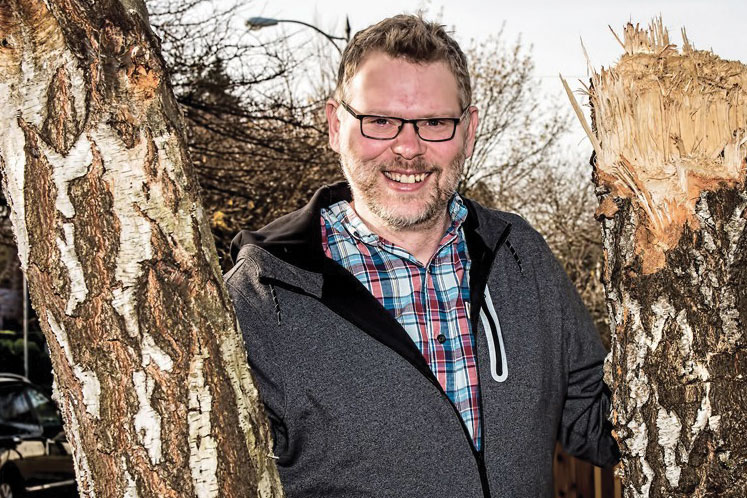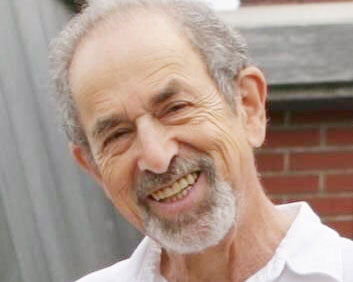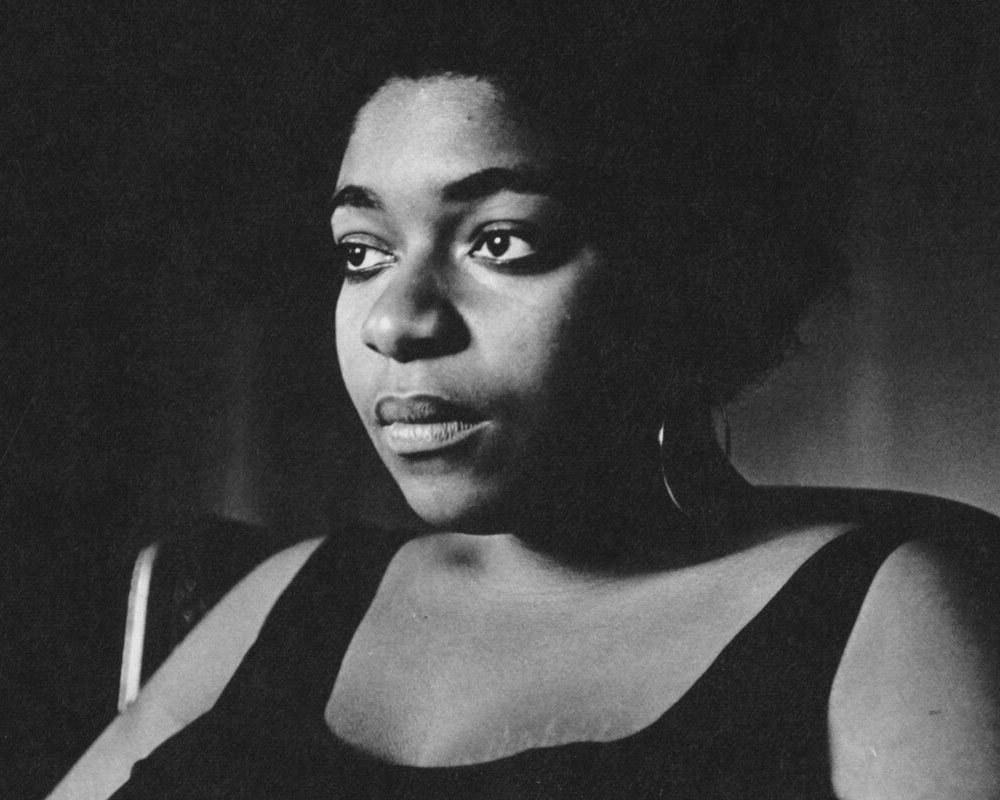Jeremy Thomas Stone ’99

September 24, 2022, in Vancouver, British Columbia, took his own life as a consequence of long-term depression.
Jeremy grew up in the small coastal town of Angleton, Texas, the son of a preacher and a stay-at-home mom. The family lived on the margins of the poverty line; Jeremy’s father was often between jobs, and his mother was mentally ill and could not work. This experience formed his lifelong dedication to social justice, working with marginalized communities, and his passionate work in community economic development.
In high school, Jeremy distinguished himself on the speech and debate team, and counted himself a member of almost every social circle at school. When he was 15, his parents passed away, and Jeremy became a ward of the State of Texas. When he graduated, he was voted “most likely to live very, very far away.” He earned a bachelor’s degree in anthropology at Reed, where he wrote his thesis, “The Fall of the Cassowary: Ethnicity, Morality, and Anthropological Understanding in West New Britain,” advised by Prof. Gail Kelly ’55 [anthropology 1960–2000]. He was a student senator 18 Reed Magazine MARCH 2023 for two terms, started an organization that held raves on campus, played rugby, scrounged at commons, and proudly lived at the Red Door.
“After Reed, I used my social science degree to get a job in the dot-com boom,” Jeremy said. “Realizing that I hated corporate life, I dropped out and started working at a nonprofit helping small entrepreneurs. This led to volunteering with the Peace Corps in Mongolia, underwriting microfinance loans in New York, and leading small business recovery with commercial fishermen in Louisiana after Hurricane Katrina.”
As a Peace Corps volunteer in Mongolia he developed a love for travel and mountain landscapes. Jeremy saved up $10,000 by working the box office at a Frank Sinatra tribute theatre in Chicago and then traveled overland for six months, from Istanbul, through the Middle East, Central Asia, all the “Stans,” and eventually to China. He then completed a master’s degree in public administration from the Wagner School at New York University.
While working as a senior financial analyst with the nonprofit organization Seedco Financial (now TruFund), he came to New Orleans for two years after Hurricane Katrina; his work there included designing and managing small business recovery programs. He comanaged a $20 million grant and loan program following the hurricane, and developed the Southeast Louisiana Fisheries Assistance Center, a firstof- its-kind initiative that provides ongoing financial and technical assistance to commercial fishers.
Jeremy worked and volunteered with many Vancouver organizations, including Ecotrust Canada, EMBERS, LOCO BC, the City of Vancouver, and Building Opportunities with Business. He was the director of the community economic development program at Simon Fraser University and taught at the University of British Columbia and Tulane University.
Jeremy loved traveling to small towns in British Columbia to work with locals and develop economic recovery initiatives. He started a consultancy firm, Recovery and Relief Services, Inc., which worked with local governments to prepare and respond to economic shocks following disasters. Every year he returned to New Orleans to work with his friends in the Vietnamese fishing community. Jeremy was a founding board member for the nonprofit Coastal Communities Consulting, which aids in recovery efforts following disasters, such as the BP oil spill. His most recent employment was with the B.C. provincial government department of emergency management. In June of 2022, with the help of a Vanier Scholarship, he reached his lifelong goal of earning a PhD in community and regional planning from the University of British Columbia. His dissertation, which examined gentrification in the Central City neighborhood of post-Katrina New Orleans, won the H. Peter Oberlander prize for the year’s best thesis.
He was a loving father who crafted and created everything from sewing projects to filming short movies with his daughter, Ellie. A feminist, and a voice for social justice, he often took her to protests for Black Lives Matter, Indigenous and women’s rights, and climate change. An advocate for rural and small businesses, Jeremy understood that the culture of a place was heavily dependent on the local businesses that support a community. A Texas native, he was a fan of BBQ and made the best ribs and brisket north of the border.
Asked what advice he would give Reedies, Jeremy replied, “Don’t worry about linear trajectories. The first or second job you take out of Reed doesn’t set your career path, so don’t put a lot of pressure on yourself to do the right thing. Look for interesting experiences, or employers who care about mentorship. You’ll have to get an advanced degree at some point, so use that as your career reset. In the meantime, just learn about the world outside of academia and enjoy your life.”
Jeremy worked hard to overcome his childhood trauma, addiction, and poverty to be a voice for change and goodness. He leaves behind his daughter, Ellie, and his loving coparent, Anne Pearson ’99.
Appeared in Reed magazine: March 2023





![Photo of Prof. Marvin Levich [philosophy 1953–94]](https://www.reed.edu/reed-magazine/in-memoriam/assets/images/2022/LTL-levich1.jpg)
![Photo of President Paul E. Bragdon [1971–88]](https://www.reed.edu/reed-magazine/in-memoriam/assets/images/2020/Bragdon.jpg)
![Photo of Prof. Edward Barton Segel [history 1973–2011]](https://www.reed.edu/reed-magazine/in-memoriam/assets/images/2020/Segel.jpg)








































































